第51章
There is one woman known to many of us, as each human creature knows but one on earth; and it is upon our knowledge of that woman that we base our certitude.
For those who do not know her, and have not this ground, it is probably profitable and necessary that they painfully collect isolated facts and then speculate upon them, and base whatever views they should form upon these collections.It might even be profitable that they should form no definite opinions at all, but wait till the ages of practical experience have put doubt to rest.For those of us who have a ground of knowledge which we cannot transmit to outsiders, it is perhaps more profitable to act fearlessly than to argue.
Finally, it may be objected to the entrance of woman to the new fields of labour, and in effect it is often said--"What, and if, all you have sought be granted you--if it be fully agreed that woman's ancient fields of toil are slipping from her, and that, if she do not find new, she must fall into a state of sexual parasitism, dependent on her reproductive functions alone; and granted, that, doing this, she must degenerate, and that from her degeneration must arise the degeneration and arrest of development of the males as well as of the females of her race; and granting also, fully, that in the past woman has borne one full half, and often more than one half, of the weight of the productive labours of her societies, in addition to child-bearing; and allowing more fully that she may be as well able to sustain her share in the intellectual labours of the future as in the more mechanical labours of the past; granting all this, may there not be one aspect of the question left out of consideration which may reverse all conclusions as to the desirability, and the human good to be attained by woman's enlarged freedom and her entering into the new fields of toil?
What if, the increased culture and mental activity of woman necessary for her entrance into the new fields, however desirable in other ways for herself and the race, should result in a diminution, or in an absolute abolition of the sexual attraction and affection, which in all ages of the past has bound the two halves of humanity together? What if, though the stern and unlovely manual labours of the past have never affected her attractiveness for the male of her own society, nor his for her; yet the performance by woman of intellectual labours, or complex and interesting manual labour, and her increased intelligence and width, should render the male objectionable to her, and the woman undesirable to the male; so that the very race itself might become extinct through the dearth of sexual affection? What, and if, the woman ceases to value the son she bears, and to feel desire for and tenderness to the man who begets him; and the man to value and desire the woman and her offspring? Would not such a result exceed, or at least equal, in its evil to humanity, anything which could result from the degeneration and parasitism of woman? Would it not be well, if there exist any possibility of this danger, that woman, however conscious that she can perform social labour as nobly and successfully under the new conditions of life as the old, should yet consciously, and deliberately, with her eyes open, sink into a state of pure intellectual torpor, with all its attendant evils, rather than face the more irreparable loss which her development and the exercise of her gifts might entail?
Would it not be well she should deliberately determine, as the lesser of two evils, to dwarf herself and limit her activities and the expansion of her faculties, rather than that any risk should be run of the bond of desire and emotion between the two sexual halves of humanity being severed?
If the race is to decay and become extinct on earth, might it not as well be through the parasitism and decay of woman, as through the decay of the sexual instinct?
It is not easy to reply with rationality, or even gravity, to a supposition, which appears to be based on the conception that a sudden and entire subversion of the deepest of those elements on which human, and even animal, life on the globe is based, is possible from so inadequate a cause:
and it might well be passed silently, were it not that, under some form or other, this argument frequently recurs, now in a more rational and then in a more irrational form; constituting sometimes an objection in even moderately intelligent minds, to the entrance of woman into the new fields of labour.
It must be at once frankly admitted that, were there the smallest possible danger in this direction, the sooner woman laid aside all endeavour in the direction of increased knowledge and the attainment of new fields of activity, the better for herself and for the race.